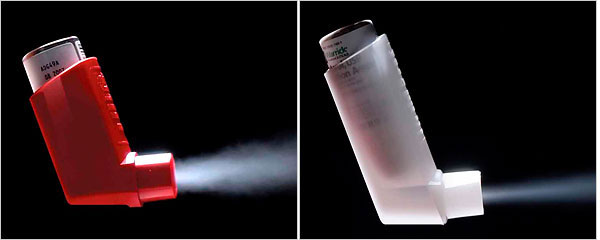When managing respiratory conditions like asthma or chronic obstructive pulmonary disease (COPD), patients often wonder which inhaler is better: Ventolin or ProAir.
With so many inhalers available in the market, Ventolin and ProAir are two commonly known options.
In this article, we will compare Ventolin and ProAir to help you decide which inhaler might be the right choice. We will discuss the similarities and differences between these inhalers and explore which may provide the most effective relief for your respiratory symptoms. Let’s dive in!
Overview of Ventolin and ProAir
Ventolin and ProAir are inhalers that contain a medication called albuterol sulfate. They help people who have trouble breathing due to asthma or COPD.
Classification as short-acting beta-agonist (SABA) inhalers
These inhalers are known as “short-acting beta-agonist (SABA) inhalers.” They are helpful for quickly relieving symptoms when someone is having trouble breathing. They work by relaxing the muscles in the tubes that carry air in and out of the lungs. This makes it easier to breathe and helps improve airflow.
How they work to relieve respiratory symptoms
Ventolin and ProAir work by touching special parts called “beta receptors” in the muscles of the lungs. When these receptors are touched by the medication, the muscles relax, and the tubes in the lungs open up. This helps to relieve symptoms like wheezing, feeling short of breath, or having a cough. These inhalers provide relief quickly and are often used during sudden breathing problems or asthma attacks.
Price Comparison
When comparing the cost of Ventolin and ProAir inhalers, Ventolin is usually cheaper than ProAir. Ventolin inhalers cost around $25 to $60 per inhaler on average, while proAir inhalers can cost between $50 and $90 per inhaler.
Regarding price, Ventolin is often considered a better choice because it’s generally cheaper. Ventolin also comes in a generic form, making it even cheaper.
Efficacy
Ventolin and ProAir inhalers are both very effective in relieving symptoms for people with asthma or COPD.
Both medications have bronchodilators, which relax the muscles in the airways and help improve breathing. This relieves symptoms like wheezing, shortness of breath, and chest tightness.
Studies have shown that Ventolin and ProAir inhalers can effectively ease bronchospasms and improve lung function. They are usually equally effective in providing symptom relief.
It’s important to know how well Ventolin and ProAir work can vary depending on the person and how severe their condition is. Some people may find Ventolin works better for them, while others prefer ProAir. It’s a good idea to talk to your doctor about your experiences to find the right inhaler for you.
Side effects
Taking Ventolin or ProAir inhalers might cause you to feel:
- Shaky or trembly in your hands or feet
- Nervous or anxious
- Have a headache
- Have a fast or irregular heart beat
- A dry or scratchy throat
- A cough
- Cramps in your muscles
These side effects are usually not too bad and don’t last long. They will usually go away on their own as your body gets used to the medicine. If any of these side effects are bothering you, it’s a good idea to talk to your doctor about what to do next.
Remember, the side effects you might get from Ventolin or ProAir inhalers are usually not a big deal. The good things these medicines do for your breathing is more important than any small problems. Your doctor can help you figure out what to do about any side effects you have.
Ventolin and ProAir: Which is the Better Choice?
When comparing Ventolin and ProAir, it’s important to know that both medicines treat asthma and respiratory conditions. They work in similar ways to relieve symptoms. However, there are some things to think about when choosing which one is better for you:
Cost:
The price of Ventolin and ProAir can be different. It’s a good idea to check how much each one cost and see which is more affordable.
Availability:
Sometimes, Ventolin or ProAir might only be available in some places. Make sure to check if the medicine you prefer is easily accessible where you live.
Inhaler device:
Ventolin and ProAir come in different types of inhalers. Some people might find one inhaler easier to use than the other. It’s a good idea to try both and see which one feels more comfortable for you.
Personal preference:
Everyone’s body is different, so some people might find that Ventolin works better for them, while others prefer ProAir. It’s important to listen to what your body tells you and choose the medicine that feels best for you.
Keep in mind that both Ventolin and ProAir are approved by the FDA and considered safe. It’s a good idea to talk with your doctor about your specific needs and any concerns you have. They can give you personalized advice and help you decide if Ventolin or ProAir is better for you.
Conclusion
To sum up; when deciding between Ventolin and ProAir for managing asthma or COPD; there isn’t one medicine that works best for everyone.
Both medications treat symptoms well, but the choice depends on cost, availability, inhaler type, and what you prefer. It’s important to talk to a healthcare professional that can evaluate your situation and find the best medicine for you. By working together, you can find the option that relieves symptoms and allows you to live a healthy and active life.
